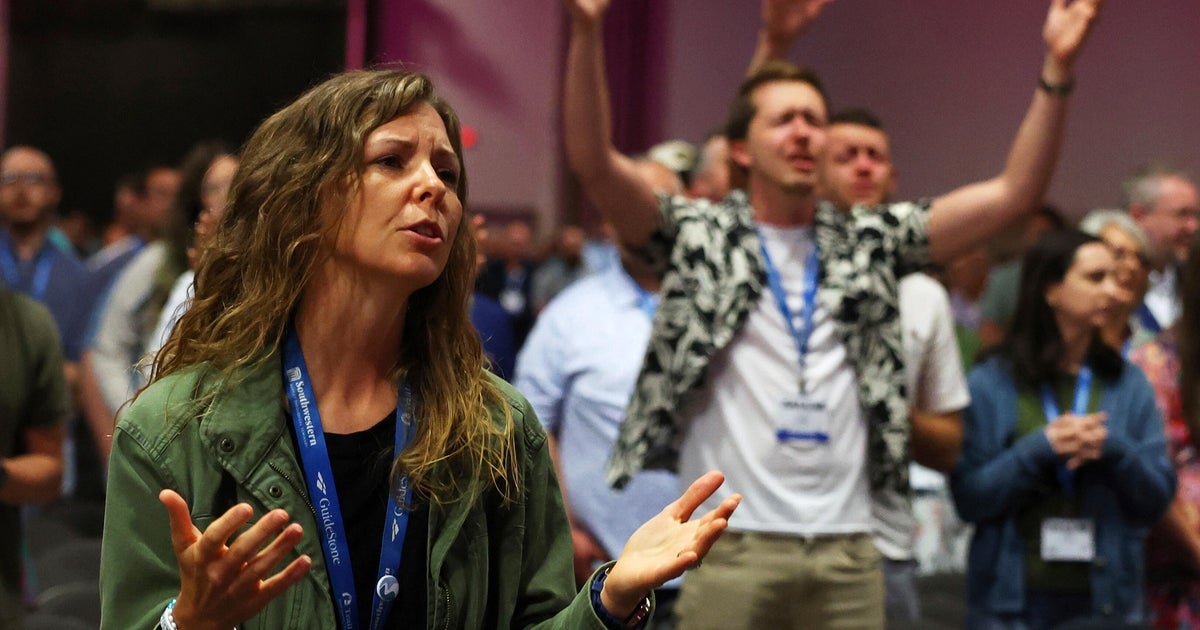During their national meeting, Southern Baptist delegates voted overwhelmingly to endorse a ban on same-sex marriage, pushing for the reversal of the U.S. Supreme Court’s decade-old decision that legalized it nationwide. The resolution, which reflects the views of the largest Protestant denomination in the U.S., also called on lawmakers to limit sports betting and create policies that encourage childbearing.
The gathering of over 10,000 church representatives saw the vote take place on Tuesday. While the resolution did not explicitly use the term “ban,” it clearly rejected legal same-sex marriage by advocating for the “overturning of laws and court rulings, including Obergefell v. Hodges, that defy God’s design for marriage and family.” It further stated its support for legislation that promotes marriage exclusively between one man and one woman.
A successful reversal of the Obergefell decision alone would not automatically ban same-sex marriage nationwide, as 36 states had already legalized it by the time the ruling was made, and public support remains robust in many regions. However, if the delegates’ desires are realized, it would lead to the negation of all legal endorsements of same-sex marriage.
The absence of debate on the marriage resolution was not surprising given the conservative stance of the denomination, which has long defined marriage traditionally. Nevertheless, this movement represents a significant push against the current legal framework supporting same-sex marriage.
The resolution was part of a larger framework addressing marriage and family, emphasizing adherence to what the convention views as a divinely established order as outlined in the Bible. It asserts that legislators should craft laws reflecting “the truth of creation and natural law about marriage, sex, human life, and family,” opposing legislation that contradicts perceived divine principles.
It also promotes the recognition of “the biological reality of male and female” and denounces laws that would compel individuals to speak untruths about gender. The resolution encourages Christians to value marriage and childbearing, framing children as “blessings rather than burdens,” while also addressing the public policy issues of declining fertility rates and advocating for supportive family-oriented legislation.
In addition to the marriage resolution, delegates unanimously passed a resolution condemning pornography, labeling it as destructive and exploitative, and asserting that it is within government rights to ban such content. The stance against sports betting also drew from historical Southern Baptist opposition to gambling, characterizing it as “harmful and predatory,” although an amendment meant to differentiate between low-stakes recreational gambling and more harmful gambling habits was rejected.
Andrew Walker, chair of the Committee on Resolutions, noted at a news conference that the marriage resolution indicates that Southern Baptists are resisting the societal acceptance of same-sex marriage. However, he acknowledged that undoing existing legal precedents would be challenging and require thoughtful and gradual action.
The two-day event commenced with positive discussions about increasing baptism numbers, tempered by the recent death of Jennifer Lyell, a prominent whistleblower in a sexual abuse scandal involving the denomination. Lyell’s passing, caused by catastrophic strokes, was shared by a friend who noted the toll her advocacy took on her well-being after she disclosed her abuse by a seminary professor.
Some survivors and reform advocates, previously active participants in SBC meetings, chose to skip this year’s event due to perceived stagnation in addressing the abuse crisis. Outside the convention center, two individuals held vigil for Lyell and another abuse survivor, calling attention to the ongoing struggles within the community. One vigil attendee emphasized the need for survivors to feel supported in their advocacy.
In 2022, the SBC Executive Committee issued an apology for its failure to adequately support Lyell during her ordeal and recognized the mishandling of abuse cases. Nonetheless, advocates for reform have criticized the denomination’s reforms as insufficient. Despite a previous vote to establish a mechanism for tracking credibly accused individuals, the Executive Committee’s focus appears to have shifted away from this initiative.
Reform advocates have voiced frustration over what they perceive as ineffective measures being announced rather than implemented in meaningful ways. The Executive Committee is also seeking $3 million in funding to cover ongoing legal costs related to abuse cases.
As of late Tuesday afternoon, attendance stood at 10,541 messengers, a significant decrease from previous gatherings which saw far larger turnouts. The current assembly will also deliberate on whether to establish a constitutional ban on churches with female pastors and potentially dissolve the Ethics and Religious Liberty Commission, a body some critics feel does not meet the denomination’s conservative expectations. Brent Leatherwood, president of the ERLC, intends to address ongoing challenges during his remarks on Wednesday but expressed confidence in receiving support from messengers.

